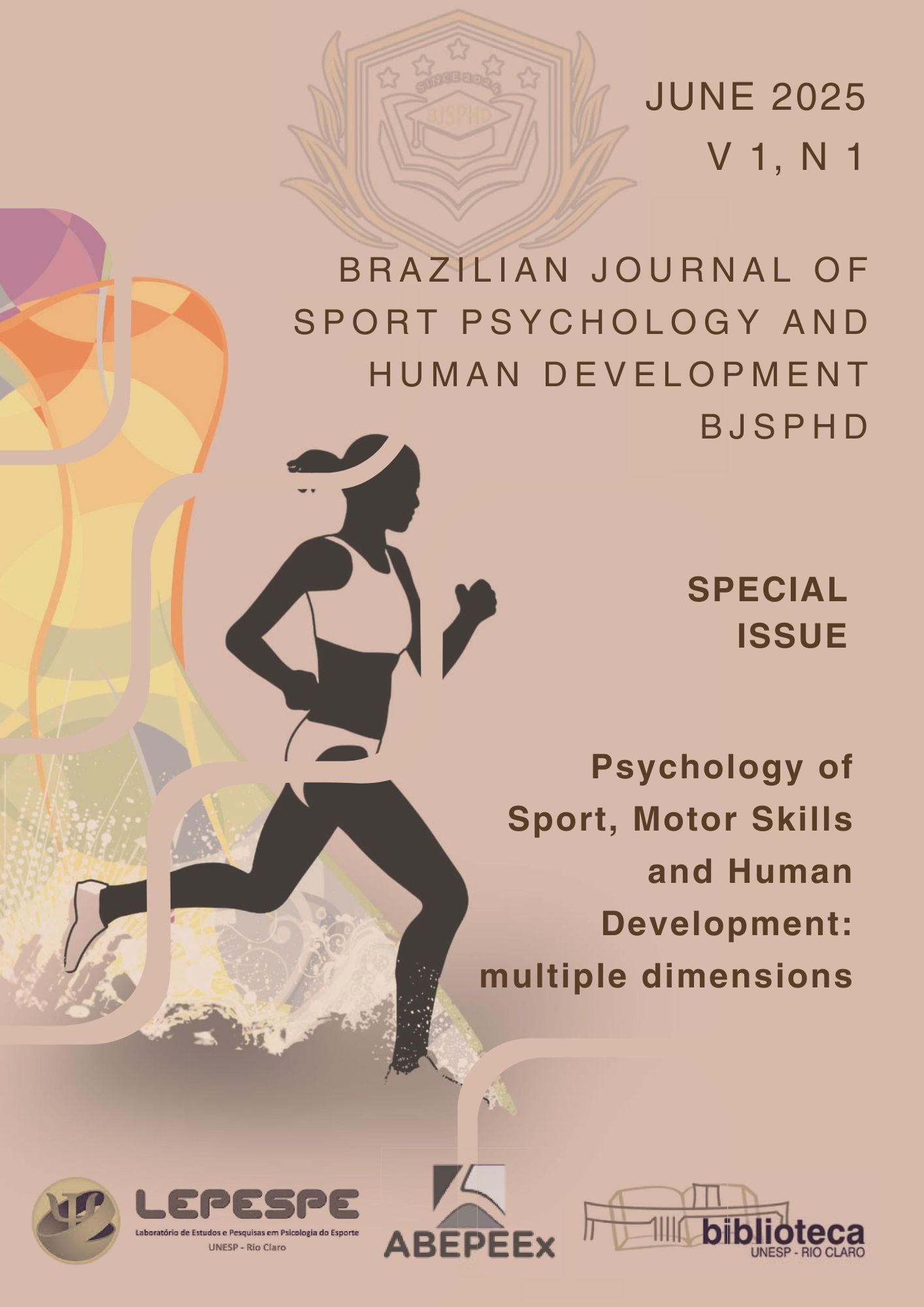AN ECOLOGICAL APPROACH TO SOURCES OF ENJOYMENT IN YOUNG FEMALE ATHLETES
DOI:
https://doi.org/10.5016/bjsphd.v1i1.19442Abstract
The present study used a bioecological approach to investigate the factors influencing enjoyment sources among young female athletes. It focused on personal characteristics (maturity status), process (accumulated deliberate practice), and contextual factors (age group, competition level, sport type, and state), as well as the dynamic interactions of time with personal characteristics and process. The study included 243 young female athletes, with repeated measures collected from a sub-sample of 84 athletes across competitive seasons. We modeled the responses to the Sources of Enjoyment in Youth Sports Questionnaire (SEYSQ) using Bayesian hierarchical modeling. The results indicated that, in general, the young female athletes agreed with the statements in the SEYSQ. When considering cross-sectional data, there was no variation in the responses to SEYSQ factors associated with process, person, and context. When aligning chronological age, menarche age, and accumulated sport-specific deliberate practice, the sport context emerged as an important in shaping changes in sources of enjoyment across the development of young Brazilian female athletes between 12 and 18 years. The study highlights the importance of incorporating time in ecological approaches to youth sport research through a repeated-measures design to operationalize the bioecological approach properly. The findings do not support the argument that early specialization may lead to low enjoyment and a compromise in commitment and sustained participation in youth sport programs.





